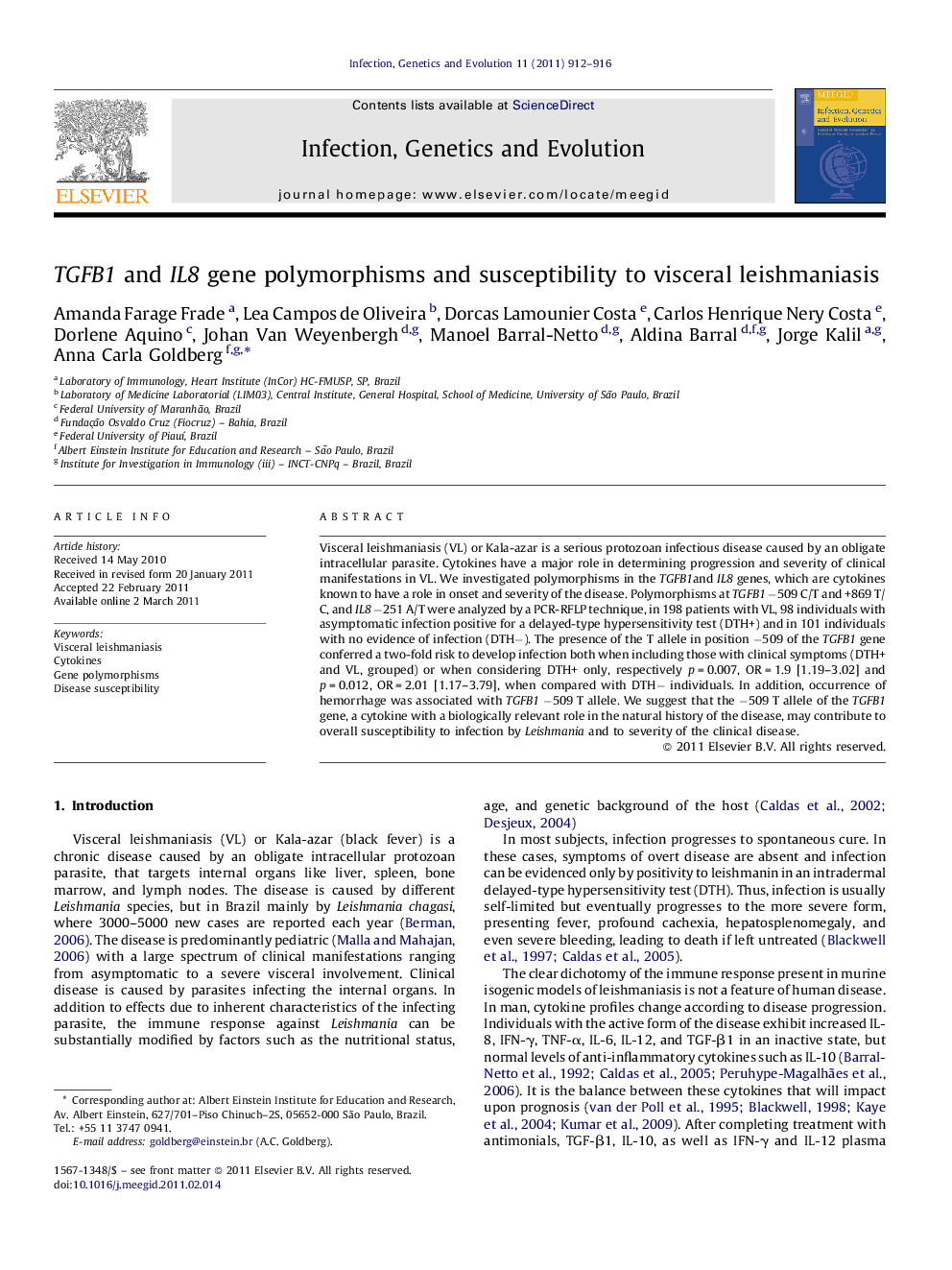| Article ID | Journal | Published Year | Pages | File Type |
|---|---|---|---|---|
| 2823108 | Infection, Genetics and Evolution | 2011 | 5 Pages |
Visceral leishmaniasis (VL) or Kala-azar is a serious protozoan infectious disease caused by an obligate intracellular parasite. Cytokines have a major role in determining progression and severity of clinical manifestations in VL. We investigated polymorphisms in the TGFB1and IL8 genes, which are cytokines known to have a role in onset and severity of the disease. Polymorphisms at TGFB1 −509 C/T and +869 T/C, and IL8 −251 A/T were analyzed by a PCR-RFLP technique, in 198 patients with VL, 98 individuals with asymptomatic infection positive for a delayed-type hypersensitivity test (DTH+) and in 101 individuals with no evidence of infection (DTH−). The presence of the T allele in position −509 of the TGFB1 gene conferred a two-fold risk to develop infection both when including those with clinical symptoms (DTH+ and VL, grouped) or when considering DTH+ only, respectively p = 0.007, OR = 1.9 [1.19–3.02] and p = 0.012, OR = 2.01 [1.17–3.79], when compared with DTH− individuals. In addition, occurrence of hemorrhage was associated with TGFB1 −509 T allele. We suggest that the −509 T allele of the TGFB1 gene, a cytokine with a biologically relevant role in the natural history of the disease, may contribute to overall susceptibility to infection by Leishmania and to severity of the clinical disease.
